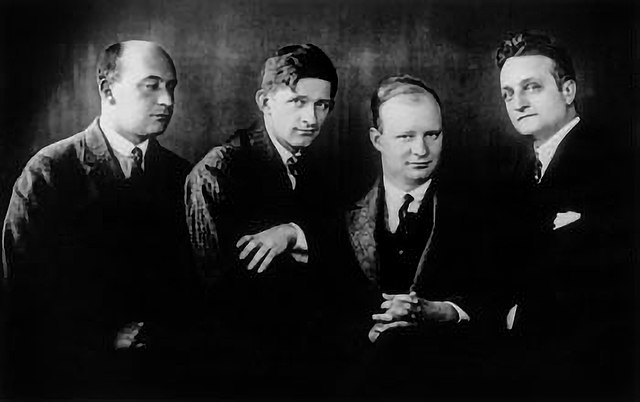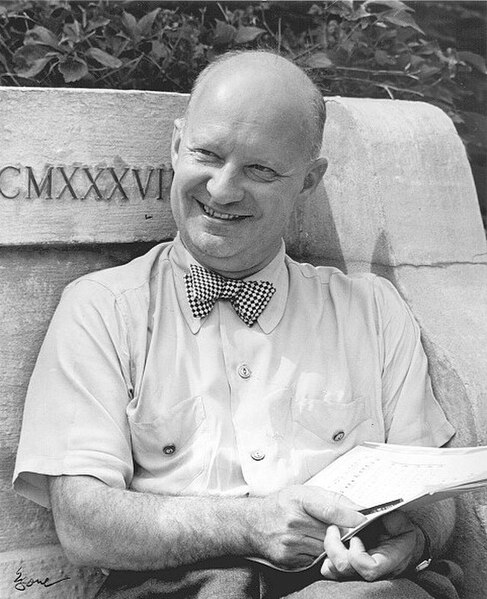Rudolf Hindemith, since 1951 officially Paul Quest, pseudonym Hans Lofer was a German cellist, composer and conductor. He was solo cellist of the Vienna State Opera, and played chamber music in the Amar Quartet. He stood often in the shadow of his famous brother Paul but was rediscovered in recent years as a composer of an opera, a piano concerto, chamber music and piano pieces.
Amar Quartet in 1925, with Rudolf Hindemith 2nd from left, Paul Hindemith 3rd from left
Paul Hindemith was a German and American composer, music theorist, teacher, violist and conductor. He founded the Amar Quartet in 1921, touring extensively in Europe. As a composer, he became a major advocate of the Neue Sachlichkeit style of music in the 1920s, with compositions such as Kammermusik, including works with viola and viola d'amore as solo instruments in a neo-Bachian spirit. Other notable compositions include his song cycle Das Marienleben (1923), Der Schwanendreher for viola and orchestra (1935), the opera Mathis der Maler (1938), the Symphonic Metamorphosis of Themes by Carl Maria von Weber (1943), and the oratorio When Lilacs Last in the Dooryard Bloom'd (1946), a requiem based on Walt Whitman's poem. Hindemith and his wife emigrated to Switzerland and the United States ahead of World War II, after worsening difficulties with the Nazi German regime. In his later years, he conducted and recorded much of his own music.
Hindemith in 1923
Hindemith during the 1940s
Hindemith (left) received the Wihuri Sibelius Prize in 1955 from Antti Wihuri.
Swiss gravesite





